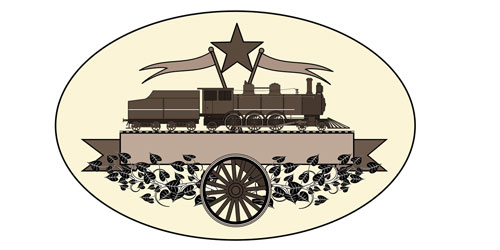《论语诠解英文版》——Chapter II "为政" (Weizheng)
[2- 1] 子曰: “ 为政以德, 譬如北辰, 居其所而众星共之。"
- The Master said, "If one governs with the power of moral force and true virtue, one will be like the Polar Star, which stays in its position while all the other stars rotate around "
- [Comment] "为政以德 wei zh的 g yT de" can be thought of as equivalent to "以德为政 yT de wei zh的 g ," which means "to govern with the power of moral force and true virtue."" 以 yT" is a preposition, implying " 用 ya ng" (to use, or to utilize). " 北辰 b色i c h的 " refers to "the Polar Star" and "所 s u6 " denotes "place or position." In this passage, " 共 go ng" is used interchange ably with " 拱 go ng" to mean "rotate around," or "to turn toward."
[Reading] This section focuses on the relationship between sociopolitical life and natural phenomena as perceived by the Chinese mindset. These included cyclical changes in nature—day and night, the change of seasons, and the cycles of life and death. Everything has its own position in a natural order and each has its counterbalance or opposite. Such changes, however, seem to follow an order of a higher level that ensures the way. In this section, Con fucius drew an analogy between the astronomical phenomenon of the Polar Star and the enhancing power of true virtue and ethical values to illustrate the importance of performing acts of benevolence. It is imperative, accord ing to Confucius, that a good government govern with superior moral force rather than rigid legal means. In other words, he argued for the transforming power of moral education over that of impersonal law.
[2- 2] 子曰: “《 诗》三百, 一言 以 蔽之, 曰: `思无邪。' "
- The Master said: "What the 300 verses of the Classic of Odes state may be sun 皿 arized in one single sentence:'Think innocently and morally, with out any degraded '"
- [Comment] The Classic of Odes consists of a total of three hundred and five verses. "三百 son bai" (three hundred) is merely a conventional way of
referring to this ancient anthology." 蔽 b1" means "to put in a single phrase," or "simply put." " 思 无 邪 s1wu xi 令 translates as "to think innocently and morally, without any degraded thoughts," while " 无 邪 WU xie " connotes the values of "sincerity, integrity and virtue."
[Reading] The Classic of Odes is venerated as one of the "Five Classics" (along with the Book of Documents (《尚书》Shangshu), Book of Rites (《礼记》Liji), Book of Changes (《易经》 Yijing) and Spring and Autumn
Annals (《春秋》 Chunq iu)). The Classic of Odes is the oldest existing collection of Chinese poetry, commonly believed to be compiled by Con fucius. The guiding principle for the compilation of this poetic collection, it may be safely argued, is what Confucius would call "思无邪 SI WU xie," which can be translated as "to think innocently and morally, without any degraded thoughts." As such, it has been carefully studied, together with the other Classics, by scholars in China, particularly for the civil service examination in the old days in order to be selected for the state bureauc racy.
[2- 3] 子曰: “道之以政,齐之以刑,民免而无耻。道之以德,齐之以礼,有耻且格。"
- The Master said: "If you guide the people with decrees and regulate them with punitive measures, they will try to avoid the punishment by all means, including shameful But if you lead them with true virtue and ethical values and admonish them with the power of proprieties, they will attain a moral sense of their own and would rectify and remedy themselves accordingly."
[Comment] "道啦o" can be used interchangeably with "导 d ao" in this case, meaning "to guide, lead, steer." " 政 z 陡 ng" is " 政 令 zhe ng llng" indicating "policy, guidelines" or " 政 法 zh 的 g fa," which might indicate a ruling, decree, or mandate, while " 齐 q i" means "to regulate, to rule." " 齐 之以刑qi zhT yT xfng" denotes "to discipline people with punitive measures."
“免而无耻 mia n er wu chT" implies "to avoid punishment by all means, including those means with no sense of shame." " 有耻 yo u chT" connotes "having a sense of shame," while "f各 g e" implies the actions "to rectify, correct, remedy, or set right." "有耻且格 yo u chT qie ge" translates as "having a strong moral sense and rectifying wrong doings."
[Reading] In this section Confucius compared two different guiding prin ciples of governing a country. Punitive measures could deter people from violating laws but they could also give rise to a situation in which people would resort to all means, including shameful means to evade punishment. Confucius believed good government guides the people with ethical values and the power of proprieties. This way, the people would attain a moral sense of their own and would rectify themselves accordingly.
[2- 4] 子曰: “ 吾十有五而志千学, 三十而立,四 十而不惑, 五十而知天命,六十而耳顺,七十而从心所欲,不逾矩。"
- The Master said: "At fifteen I began to dedicate myself to learning. At thirty I found my position in society and began to establish At forty I had no doubts about life. At fifty I understood the way of Heaven with rev erence. At sixty I was close to truth. At seventy I could follow my heart yet not to transgress the bounds of virtuous conduct."
- [Comment] "学 xue" is used as a noun to mean "学问 xue w的,学识 xue shf" (learning or knowledge). "志千学 zh1 yu XU令 translates as "dedicated to pursuing learning and knowledge." Here , " 立 11" is used interchangeably as "{ 立 w 创 " to mean "having found one's position and having established oneself." "不惑 bu huo" implies "not to be confused and disoriented." His torically, there has been a great deal of controversy on the interpretation of “知天命 zhT tian mlng." In our view, it implies that one has come to under stand the way the universe operates—most importantly, one has obtained a deep understanding of society and human life, or more generally, the Man- date of Heaven. "耳顺 色r shun" is sometimes interpreted as "the ability to distinguish between what is right and what is wrong when hearing people talk." We believe, however, that the following would make for a stronger and more meaningful translation: "When I hear something takes place, I understand why it is so."
[Reading] In this section Confucius described how he advanced on his personal journey from a pursuer of learning to one who has been on the right track thoroughly in tune with the way of virtue and wisdom.
[2- 5] 孟懿子问孝。子曰: “无违。"
樊迟御。子告之曰:“孟孙问孝千我,我对曰:'无违'。"樊迟曰: “何谓也?“子曰: “生,事之以礼;死,葬之以礼,祭之以礼。"
- Meng Yizi asked what filial piety was. The Master said that filial piety could be surmised as "Do not violate the norm of "
Later, when Fan Chi was driving him on a cart, the Master told him, "Meng Sun asked me about the meaning of filial piety, and I told him it meant not to violate the norm of rituals. Fan Chi asked, "What did you mean?" The Master said, "When your parents are alive, serve them in accord with propriety; when they die, bury them in accord with propriety and then worship them in accord with propriety."
[Comment] "孟懿子m的 g y] zT" was a minister in the state of Lu. His sur name, given name, and posthumous titles were " 仲孙 zho ng s un," " 何忌h句 ," and " 懿 y] " respectively. " 无违 wu w苛 means "not to violate the norm of ritual and ethics." " 樊 迟 f6 n chf" was a disciple of Confucius. His surname was ' 樊 f6 n," his given name ' 须 xO ," and he also held a cour- tesy name of "子迟 zT chf .""御 yu" means '驾 车 jia che" (ride a cart).
[Reading] This section emphasizes the importance of applying oneself to the fullest in executing filial piety to his parents in thorough accordance with the rites of propriety. In other words, filial piety, from Confucius'perspec tive, is itself an integral part of rituals.
[2- 6] 孟武伯问孝。子曰 : “父母唯其疾之忧。"
- Meng Wubo asked about filial The Master said, "Parents are most concerned about their children's health."
- [Comment] "孟武伯 m的 g wu b6" was the son of "孟懿子 m却 g yl zT" and " 武 wu "is his posthumous title. "其qi " is a pronoun, which can refer to either parents, children, or both. While these other uses are logical in this context, the phrase refers to children.
[Reading] This section records the dialogue between Confucius and Meng
Wubo, which was about filial piety. Traditionally, there have been two dif ferent interpretations of their dialogue. Firstly, " 父母唯其疾之忧。"is inter preted to mean "parental love and concern for their children lest they may fall sick." Because of this, filial children should take care of their own health so that their parents would not be worried about them. This is one of the ways children can show their filial piety to parents. Secondly, " 父母唯其疾之忧。" can be interpreted as "Children are concerned lest their parents fall sick. Other than that, they do not have to worry about them." We believe the first interpretation is the stronger choice in this context.
[2- 7] 子游问孝。子曰: “今之孝者,是谓能养。至千犬马,皆 能有养。不敬,何以别乎?”
- Ziyou asked about filial The Master said, "To be filial nowadays means taking care of one's parents. But people also take care of their dogs and horses. Without reverence, how does one distinguish the former from the latter? "
- [Comment] "子游zT y6u" was a disciple of Confucius. His surname, given name and courtesy names were "言 y6 n" , '偃 yon" , and "子游 zT y6u."
- [Reading] There have been different interpretations of the sentence "至千犬马 zh1 yu quan ma, 皆能有养 jie 咭 ng you yang" in this section. We believe that with this statement Confucius placed an emphasis on the very nature of filial piety. That is, one's filial piety to his parents should be distin guished from the piety he demonstrates toward others. In other words, one takes care of his parents, but one also cares for animals such as dogs and horses. There must be a difference: that is, filial piety must go together with sincerity, compassion and deference. Otherwise, how can one distinguish between parents and animals?
[2- 8] 子夏问孝。子曰:“色 难。有事,弟 子 服其劳; 有酒食,先 生 馔,曾是以为孝乎?”
- Zixia asked about the meaning of filial piety. The Master said, "It's hard to always show your parents the pleasant expression on your face. Filial piety does not simply mean the young taking the toil for them when they are unable to do it themselves and presenting them with food and wine when it is "
- [Comment] " 色 难 s e nan" means "being hard to always wear a pleasant countenance." "弟子 dl zT" implies youth who are either younger brothers or sons. In this context, it refers to the young members of a family. Generally,
“先生 xia n sheng" translates as "seniors or elders" but here it refers specif ically to one's "parents." " 馔 zhua n" means "something to eat and drink," while "曾吱ng" is an adverb, connoting "Isn't so?" or "How come?"
[Reading] Sections 5 - 8 all deal with the topic of filial piety, which, as was discussed previously, constitutes one of the core values of Confucian moral thinking. Confucius argued that filial piety does not mean simply to attend to one's parents in accordance with the rites of propriety of the Zhou Dynasty. More importantly, children should be filial to their parents by, as is illustrated in this section, showing a genuinely pleasant expression on their face, something from the bottom of their heart.
[2- 9] 子曰:“ 吾与回言终日,不 违,如愚。退而省其私,亦 足以发, 回也不愚。"
- The Master said, "I talked with Hui for a whole day and he never disa greed with me, as if he were After he retired, I examined his behavior behind him and found him able to fully understand my teachings and apply them well. Sure, he is not stupid at all!"
[Com ment] "回 h u f" refers to "颜回 y6 n huf" who was Confucius'favorite disciple. His surname, given name, and courtesy names were " 颜 y6 n," " 回huf ," and "子渊 zT yuan." "省其私 xTng qf s1" means "to observe his be- haviors and his words." "发 fa" connotes "发明 fa mf ng" (to invent; inven tion) or "发挥 fa huT" (to apply, to put into practice). "回 hu f ( 颜渊 y6 n yuan)" was Confucius'favored disciple and is praised in many passages of The Analects. Unfortunately, he died young, probably around the age of thirty, which completely saddened the Master's heart.
[Reading] This section records Confucius'high praise of his most favored disciple, Yan Yuan. Obviously, as an educator, Confucius had a low opinion of those students who never disagreed with him and who did not seem to catch on quickly. But Confucius was also cautious not to jump to conclu sions. As was demonstrated in this section, he quickly corrected himself after he had carefully observed Yan Yuan behind him.
[2- 10] 子曰: “视其所以,观其所由,察其所安,人焉瘦哉?人焉瘦哉?”
- The Master said, "Observe what a man does and Examine the way he does things and by what means. And study what he feels comfortable to do. How then can a man possibly conceal his character? How?"
[Comment] "视s hl" translates as both '观 g ua n" (observe) and "察ch6" (examine). Both share the implication of "seeing," although to dif ferent extents." 所以 s u6 yT "means"motives for doing things," while " 以yT" suggests "with," implying "motivation, cause, reason." " 所 由 s u6 y6u" denotes "those things done in the past" or "the path taken in the past." "所安 s u 6'an" describes the "things one feels happy and comfort able to do." "焉瘦yo n sou" means "how can it be concealed?" "焉 yo n" connotes "何 h令 (how) and "瘦s o u" implies "to hide, or to conceal."
[Reading] This section discusses ways to know a person. Confucius warned that to get to know a person we must not only observe what he does, but more importantly we should carefully examine how he does things. In other words, the more we observe and examine a person, the better we can get to know that person.
[2- 11] 子曰: “温故而知新,可以为师矣。"
- The Master said: "Those who know how to review what they have learned so as to be able to learn new knowledge can be teachers for others."
- [Com ment] " 温故 we n gu" literarily means "to review the past, including people and things." "新 xTn" is used as a verb here, denoting "to improve, to make progress." According to the Dingzhou Analects manuscript (hand written on bamboo-slips unearthed in a Han-Dynasty tomb in the city of Dingzhou in Hebei Province in 1973), "知zhl " originally meant " 智zhl ", which translates as "intelligence, wisdom."
[Reading] In this section Confucius discusses the qualities a teacher should possess, which includes not only knowing how to review what he has learned, but more importantly, knowing how to pursue knowledge based on what he has already learned.
[2- 12] 子曰: “君子不器。"
- The Master said: "The noble man of true virtue does not brag about his talent."
- [Comment] The original meaning of " 器 ql" is that of a utensil or tool. In this context, it is used to mean "能力 呻ng 11" (ability) or " 才能 c 6 i n的 g" (talent). According to Confucius, "君子 jOn zT ", a noble man of superior moral force and ethical values, constantly seeks to improve himself. While doing so, he remains humble and does not brag about his talents or accom plishments.
- [Reading] This section focuses on the virtuous qualities a noble man pos sesses. He is talented and resourceful yet he never shows off. His greatness comes precisely from his humility.
[2- 13] 子贡问君子。子曰: “先行其言而后从之。"
- Zigong asked what distinguished Junzi (a morally superior man). The Master said, "He acts before he speaks and then speaks in accordance with what he "
- [Reading] In this section Confucius described what he believed to be the distinct qualities a noble man should possess. He should be a man of erudi tion and great learning. More importantly, he never speaks before he acts. Rather, he keeps a low profile and always strives to fulfill what he promises. This is another way of saying that a noble man (Junzi) always matches his words with his actions.
[2- 14] 子曰: “君子周而不比,小人比而不周。"
- The Master said, "The noble man is all-inclusive and not The mean-minded person is cliquish and not inclusive."
- [Comment] "周 zho u" means "细密 xl ml" (meticulous), " 周道 zho u啦 o " (considerate, thoughtful), or " 团 结 tu6 n jie" (to unify; all-embracing, all-inclusive)."比 bT" means "in league with, in cahoots with." "小人xia o 伦 n" is, just the opposite of "君子 jun zT ", to describe a "morally depraved,mean-minded person."
- [Reading] In this section Confucius described the distinct difference be tween " 君子Junzi" (a noble man of true virtue) and "小人 xiaoren" (a morally depraved, mean-minded person). "君子Junzi" is open-minded and impartial, whereas "小人xiaoren" is biased, tendentious and opinionated.
[2- 15] 子曰: “学而不思则罔,思而不学则殆。"
- The Master said, "Learning without thinking only makes a man con fused and Thinking without learning only lands a man in quan dary."
- [Com ment] "罔 wa ng" means "迷惘 mf wang" (confused, disoriented) or “蒙蔽 m的 g bl" (bewildered, perplexed). "殆 da i" means "in doubts, quan dary, at an impasse."
- [Reading] This section discusses the importance of a balanced relationship between learning and thinking. A noble man of true virtue combines learn ing and thinking in a meaningful way that allows them to complement each other.
[2- 16] 子曰: "攻乎异端,斯害也已!”
- The Master said, "It is indeed perilous to study strange "
- [Comment] "攻go ng" means "攻习 go ng xf" (study) or " 学习 xue xf" (learn). "异端 y1 duan" means "strange and dangerous doctrines."
[Reading] In this section Confucius warned his disciples against heretical doctrines and practices.
[2- 17] 子曰: ”由,诲女知之乎!知之为知之,不知为不知,是知也。"
- The Master said, "You (Zhong You), have you fully understood what I taught you? If you know it, you know it. If you do not know it, you do not know it. That's called'wise'."
- [Comment] " 由 y6 u" was a disciple of Confucius whose surname, given name and courtesy names were" 仲 zho ng ," " 由y6 u," and " 子路zT lu."" 由y6u" was younger than Confucius by nine years. There are six " 知 zhT'in this remark, with the first five to mean "know or understand," whereas the last " 知 zh1" was used interchangeably with " 智 zh1" , implying "smart, brilliant, or intelligent."
[Reading] This section discusses what it means to learn. Confucius believed one should remain curious and should never be content with what he has learned. Equally important is that one should be honest with knowledge.
Only when one is aware of the fact that he does not know something can learning start to take place in the first place. Just as an Arabic proverb goes, "He that knows not, and knows that he knows not is a pupil. Teach him. He that knows, and knows that he knows is a teacher. Follow him." (quoted from http://www.doceo.co.uk/tools/knowing.htm#ixzz42Yeg0yKL)
[2- 18] 子张学干禄。子曰: “多闻阙疑,慎言其余,则寡尤;多见阙殆,慎行其余,则寡悔。言寡尤,行寡悔,禄在其中矣。"
- Zizhang asked the Master how to attain an office with The Master said, "Listen more and keep to yourself those you doubt. Cautiously discuss things about which you are certain. Thus, you will be able to avoid mistakes. Observe more and keep to yourself those you doubt. Cautiously implement things about which you are confident. Thus, you will be able to avoid regrets. Speaking without fault and acting without regrets, you are on the way to obtaining an office with emolument."
- [Comment] "子张 zT zhang" was a disciple of Confucius. His surname was
"颠孙 zhua n sun," given name "shT," and courtesy name "zT zha ng ." " 干禄 ga n lu" means "to strive to hold an office." " 干 ga n" means "to strive for," while "阙疑 q ue yf" suggests "in doubts." '寡尤 g ua y6u" means "to avoid mistakes," while " 尤 y6 u" indicates those "errors, and mistakes." "阙殆 q ue dai" means the same as "阙疑 q ue yf" (in doubts). "寡悔 g ua huT" connotes "to avoid regrets."
[Reading] This section focuses on the ways to obtain an office with emolu ment. It echoes what Confucius said in Chapter XIX "子张 Zizhang" , "A scholar, if he still has leisure after having accomplished his learning, should serve society by taking a governmental job."("学而优则仕 xue er you ze sh1 ") However, to join officialdom is not Confucius'major concern. Rather, for Confucius, to be an officer is always to remain cautious, prudent and to exercise good judgment. This idea seems to be echoing what Confucius stated in the previous section. That is, "If you know it, you know it. If you do not know it, you do not know it. That is called'wise'."
[2- 19] 哀公问曰: “何为则民服?“孔子对曰: “举直错诸枉, 则民服;举枉错诸直,则民不服。"
- Duke Ai asked, "What should I do to make the people follow me?" The Master said, "Advance the righteous and place them above the crooked, and the people will follow you. The people will disobey if you advance the crooked and place them above the "
- [Comment] "哀公 aT gong" (Duke Ai of the State of Lu in the late Spring and Autumn Period (approximately 771-476 BC), was the son of Duke Ding of Lu. His surname was '姬 jT," given name "蒋 jia ng ." "哀a T" is his posthumous title." 举怕" translates as"to appoint and promote somebody."'直zhf" means "integrity, righteousness." But here it is used to refer specifical ly to a man of integrity. "错 c uo " connotes "place or position." "枉 wa ng" means "evil," implying a "man of evil."
[Reading] This section discusses what good government is and what it should do to ensure that the people follow it. More specifically, Confucius argued that good government was one that advances the righteous and places it above the immoral. When the righteous prevails, the people would follow. It is also important to note that this Confucian idea of promoting the righteous reveals a significant point, that is, men of the righteous should be advanced regardless of their background.
[2- 20] 季康子问:“使民敬 、忠以劝, 如之何?” 子曰:“临 之以庄,则敬;孝慈,则忠;举善而教不能,则劝。"
- Ji Kangzi asked, "How can I make the people venerate their ruler, be loyal to him, and be inspiring to each other?" The Master said, "Treat them with gravity and dignity, and they will venerate him. Be filial to the parents and compassionate to all, and they will be Advance the good and teach the less able, and the people will inspire each other."
[Com ment] " 康 ka ng" in " 季康子 j1 kang zT" is a posthumous title. "使民shT min" means "to make people do." "以 yT " is similar to "和 h色" which translates as "and." "临Ifn" translates as "close, nearby," while "庄 zhua ng" connotes "gravity, dignity." " 举善 ju shan" is similar to " 举直 ju zh f" (advance the righteous) as demonstrated in Section 2.19. "不能 bu n的 g" means "a man of weak ability."
[Reading] In this section Confucius discussed ways of making people rev erence their ruler and be loyal to him. He advised Ji Kangzi, a minister in the State of Lu, to focus on three important things: approach people with dignity, advocate filial piety, and advance the righteous over the crooked. Confucius believed in governing with supreme moral force and the rites of propriety. The ruler himself should enact and embody all these virtues him-self.
[2- 21] 或谓孔子曰: “子奚不为政?”子曰: ”《书》云: `孝乎惟孝,友千兄弟,施千有政。'是亦为政,奚其为为政?”
- Someone asked the Master, "Why don't you get involved in govern ment?" The Master replied, "According to the Book of History, being filial to one's parents, being fraternal to one's brothers and sisters and using this to create an impact on ministers and officials are themselves the forms of public engagement in Why then must one become an official in order to engage in the government?"
- [Com ment]" 奚xT " means" 何 he " (how), while "《书》s h Ci" refers to "《尚书》s ha ng sh Ci" (Book of History). "惟孝 w令 xia o " can be translated as "those who deserve filial piety," that is, one's parents. "友千兄弟 yo u yu xiong dl" means "friendship and fraternity among brothers," while ' 施sh1 "indicates "to influence" and "to extend to."According to"《论语译注》lun yu yl zhu" (Commentaries on Analects) by " 杨 伯 峻 ya ng b6 jun," the character " 有 yo u" in " 有 政 yo u zh 却 g " does not have any meaning when positioned before a noun, which is a kind of syntactical structure in an cient Chinese. Here, "政 z陆 ng" was used interchangeably with "正 zhe ng .""卿相 大夫 qTng xiang do fu" refers to "those who are engaged in poli- tics."
[Reading] In this section Confucius argued that the essence of good govern ing lies in filial piety toward one's parents and fraternity towards one's siblings. Those who possessed and practiced these virtues qualify themselves for official appointments. As an educator, Confucius taught his students how to cultivate themselves by advancing filial piety and fraternity. In doing so, he was engaging himself in the government, though indirectly.
[2- 22] 子曰: “人而无信,不知其可也。大车无貌,小车尤帆, 其何以行之哉?”
- The Master said, "If a man lacks credibility, I do not know how he can get on in How can a big carriage move without the crossbar for yok ing the oxen, or a small wagon move without the yoke-bar for harnessing the horses?"
[Com ment] " 信 xln" means "信誉 xln yu" (credibility) or "信用 xln yang" (trustworthiness). "其 qf" is a pronoun, referring to "people." "可 ke" means ”可以 ke yT" (can). "大车 do c h召 connotes"ox-wagan," which is used
to transport heavy objects." "小车啦 o c h召 means a cart drawn by horses that carries people. "申见 nf" is a wooden pin in the yoke-bar of an ox-wagon, whereas "舰yu扩 is a wooden pin in the collar-bar of a small wagon.
[Reading] This section emphasizes the importance of trustworthiness in a man who hopes to advance in society. One of the core values of Confucian ism, trustworthiness, as Confucius illustrated, has two dynamic implications. First, it means credibility which is required of men if they are to be viewed as dependable and worthy of trust. Secondly, it implies accountability, that is, what one says, one should match it with action. The importance of trustworthiness is repeatedly discussed in many chapters in the Analects such as Chapter XIII "子路 Zilu, " Chapter XVII "阳货 Yang Huo" and Chapter XIX “子张 Zizhang. "
[2- 23] 子张问: “十世可知也?”子曰: "殷因千夏礼,所损益, 可知也;周因千殷礼,所损益,可知也。其或继周者,虽百世,可知也。”
- Zizhang, a disciple of Confucius, asked the Master, "Can we know the state of affairs ten generations from now?" The Master said, "The Shang Dy nasty continued the traditions of the proprieties and regulations of the Xia, and what it added to and removed from it can be known. The Zhou Dynasty has followed the tradition of the proprieties and regulations of the Shang, what it added to and removed from it can be known. Thus, what would con tinue from the Zhou can, even if one hundred generations from now, also be known."
[Comment] 咽 yTn" means "继承 jl c h的 g" (to continue) or " 因袭 yTn xf" (to inherit)."损益 s un yl" connotes "增减 ze ng jian" or"变化 bia n hua"(to change) while " 其 或 qf huo" implies "if," "assuming," or "on the assump tion."
[Reading] This section has shed new light on our understanding of Confu cius'approach towards the traditions of the rites of propriety and regulations of governing prior to his time. Contrary to the traditional belief that Confu cius was rigidly clinging to the rites of propriety and code of conducts insti tutionalized during the Xia, Shang, and Zhou Dynasties, in this section we see how Confucius also discussed the relatively conservative nature of each of these dynasties. Since the Xia, each subsequent dynasty had followed the tradition of the proprieties and regulations of the previous by adding to and taking from them. While continuing the previous tradition, they also made necessary changes and reforms so that they could govern better.
[2- 24] 子曰: “非其鬼而祭之,谄也。见义不为,无勇也。"
- The Master said, "To worship ancestral spirits not of one's own is flat tery. To recoil from doing what is right is "
- [Com ment] "非其鬼 佬i qf guT" translates as "ancestors not of one's own," while " 鬼 g uT" translates as "ghost." The ancient mind believed that thedead would turn into ghosts. "i 自: c ha n" denotes "flattery, adulation, or sycophancy." "事之宜也 s hl zhT yf ye" means "things that should be done."
[Reading] In this section Confucius focused on the two important concepts: “ 义 yl" and " 勇 ya ng ," which constitute, among other things, the core values of his moral education. Whatever is in accordance with the rules of propriety and virtues is "义 yl" (the righteous) which needs to be enacted.
One of the prerequisites for the righteous and benevolence is "勇ya ng" (the courageous). But the courageous needs to be in accordance with "human kindness," "the righteous" and "the rules of propriety." Otherwise, the cou rageous is nothing but "audacity."












